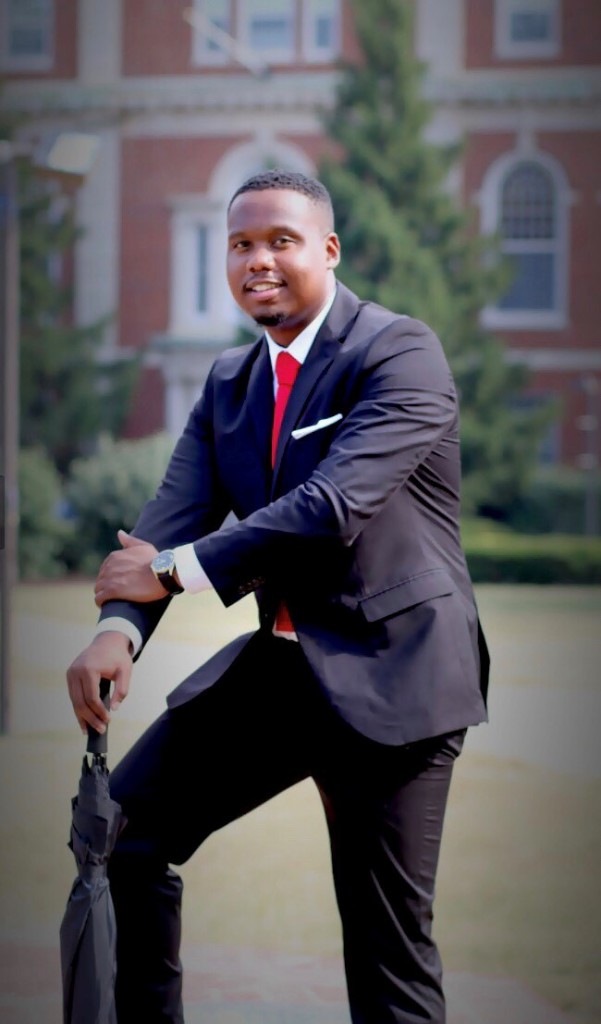We all remember how overwhelming our first few years of our undergraduate studies were. Psychology may have been our major, but there was so much information being presented in introductory courses, it was hard to know exactly what that word really meant. What did psychologists actually do all day? I know when I was a sophomore, I still thought that all psychologists were basically Clarice Starling in The Silence of the Lambs– sneaking into storage units late at night to explore a killer’s wares, examining dead bodies for clues to how they reached their demise, having intimate and revealing conversations with a serial killer through 4-inch Plexiglas. Such action-oriented images defined psychology for me. It pushed any ideas of sitting behind a desk, performing scientific experiments and analyzing data, to the very back of my mind.
Luckily, I had a bunch of very patient, but very direct, mentors who introduced me to the value of research. And I am not talking about just the “oh, now I have another line to put on my CV” sort of value. We all can remember the first time we found a significant effect size with data we had personally collected and pored over every detail of. There comes a shining moment when you realize that you have added something to the field of psychology! My mentors taught me that all the hand-wringing that came before that moment was worth it, and soon “researcher” became a part of my definition of a psychologist.
Now, I am on the other side, working as the graduate assistant for an undergraduate research program. Graduate students have a unique connection with undergraduates in our department – although, like faculty, we are older and more experienced, it is often easier for the undergraduates to connect with us. We are also still in the weeds of academia, often closer in age, and spend a lot of time focused in on the same areas. So for the undergraduates in our lab, in the classes we teach, or just at department events, we can become a major mentoring voice. In essence, we have a choice – we can simply go about our expected duties, or we can push ourselves a little farther. We can reach out to undergraduate students to introduce them to the world of psychological science.
Of course, that isn’t always easy. Undergraduates face a lot of obstacles in regards to research, and no, it isn’t just the obstacle of eating so much ramen that they cannot get into the lab. Undergrads often avoid research because:
- “Research” does not fit into their schema of “psychologist”.
Teaching these students, who may think of psychology a solely consisting of clinical work (or, in my case, forensic clinical work) how research can fit into the picture is invaluable. Speak to your undergrads about your work, and connect it directly to clinical experience. Bring current research into the classroom. Discuss with students your own experiences of doing both hands on work with clients and future-oriented work with science. Eventually, the connection will click.
2. They think that they do not know enough and will make too many mistakes
Undergraduate students (and graduate students as well, honestly) may become stuck in the paradoxical loop that they do not want to attempt anything new for fear that they will not do it perfectly the first time, or that they will disappoint their superiors. As a student who has certainly made mistakes yourself (likely in the recent past!), you can be the one to break that infinite circle of passivity. Talk about your own mistakes, even if you are not directly prompted. Use them as teaching moments for that specific task, but also as a general teaching moment that no one is ever perfect. Mistakes often lead to the most valuable teaching experiences. And as for not knowing enough, remind them – research is for exactly that purpose, when we don’t know enough, we seek out the answer. You are learning as you go along, and this field is all about jumping in and get your hands dirty. The earlier you do it, the more you will learn.
3. It is an ambiguous concept.
Lots of what we learn in undergraduate psychology is concrete; problems are described and solutions presented. In research, you have to identify the problems, or areas of uncertainty, and hypothesize solutions. Simply coming up with these two things – a research problem and a hypothesis – can be arduous enough. And it becomes even more difficult when we realize that even the most well-thought out hypotheses do not always work out.
Encourage undergraduates to draw on what they already know, and then to take a risk. Research requires taking a dip into the unknown, which is inherently risky because it is uncharted territory. Being walked through the less-defined steps for the first time can prove to be a very helpful experience. Ask undergrads to act as research assistants for your projects, and have them do more than just data collecting. Introduce them to how you came up with the research question, the IRB approval process, show them the write-up. If possible, invite them to come to conferences with you so that they can get a taste of it (and get some free vendor pens). Be the guide for the first leg of this uncharted journey, but then step back once the journey has begun. The students will realize that their risk can reap reward.
4. They do not know how to ask for guidance
Often, even if an undergraduate student is ready to integrate research into their life and jump into a pool of potential mistakes and ambiguity, they may not know how to ask for help. As graduate students, you can be an enormously helpful resource. Be inviting to undergraduates that want to come to your labs. Encourage undergraduates in your classes to speak with you after class if they are interested in research, and be willing (or knowledgeable about other labs where you can refer them) to refer them based on their topic of interest.
**
Today’s undergraduates will be our future lab partners, classmates, and eventual colleagues. It is important that we begin to build their foundation of science from the very beginning – science is an integral part of moving psychology from the past into the present, to make treatments more effective, and to make lives better. After all, Clarice Starling may have had all of the action sequences, but she may have never solved the case of Buffalo Bill without the scientists identifying the moth.
Editor’s Note: Fallon Kane is a clinical psychology doctoral candidate at the Derner School of Psychology. Her research focuses on personality pathology and interpersonal relationships, and personality change with age.
 Psychology graduate students face unique struggles compared to graduate students in other fields, as we are expected to be self-reflective, engage in self-care, and also examine our ability to work with others while making sure that we dedicate most of our time to work. The balance often becomes a very tricky process to negotiate. International students in graduate psychology programs experience additional barriers in comparison to their domestic counterparts, as they have to navigate local and national policies, immigration requirements, paperwork, and experiences of discrimination, on top of academic requirements. Further, it is not unusual for international students to feel isolated, especially in smaller programs where the international student community is scarce. In addition to cultural adjustment and a possible language barrier, international students also have to plan a timeline carefully to ensure they are up to date on immigration documentation. One of the most stressful experiences for international students in clinical, counseling, and school psychology programs is applying for the clinical internship. International students face unique challenges in this process, including a reduced number of sites that accept individuals without US citizenship or permanent residency.
Psychology graduate students face unique struggles compared to graduate students in other fields, as we are expected to be self-reflective, engage in self-care, and also examine our ability to work with others while making sure that we dedicate most of our time to work. The balance often becomes a very tricky process to negotiate. International students in graduate psychology programs experience additional barriers in comparison to their domestic counterparts, as they have to navigate local and national policies, immigration requirements, paperwork, and experiences of discrimination, on top of academic requirements. Further, it is not unusual for international students to feel isolated, especially in smaller programs where the international student community is scarce. In addition to cultural adjustment and a possible language barrier, international students also have to plan a timeline carefully to ensure they are up to date on immigration documentation. One of the most stressful experiences for international students in clinical, counseling, and school psychology programs is applying for the clinical internship. International students face unique challenges in this process, including a reduced number of sites that accept individuals without US citizenship or permanent residency.


 APAGS Diversity Infographic
APAGS Diversity Infographic Over the last few years as a School Psychology doctoral student, I have begun to experiment with various social media and technology platforms with hopes to improve efficiency and service delivery. I have found that the attention and information consumption of youth are structured into small but high-volume increments of time. Each social media platform serves its own purpose in the lives of our youth and as educators we must utilize this knowledge to bridge the educational gaps that exist.
Over the last few years as a School Psychology doctoral student, I have begun to experiment with various social media and technology platforms with hopes to improve efficiency and service delivery. I have found that the attention and information consumption of youth are structured into small but high-volume increments of time. Each social media platform serves its own purpose in the lives of our youth and as educators we must utilize this knowledge to bridge the educational gaps that exist. Dwayne Bryant is a fourth-year doctoral student at Howard University studying School Psychology. His research interests are social media and digital technology. Most recently he gained experience in providing psychotherapy at a behavioral health clinic in the Washington, DC metropolitan area. This experience provided him with a sense of confidence in his field of study. Over the last two years he has worked on research projected gear towards the advancement of women in STEM fields. He is currently working as an intern in the APA Public Interest Directorate on the issue of women and STEM. He has a passion for advocacy and fairness for all people. In the future, he plans to open a private practice and a learning and recreation center in his hometown of Oak City, NC.
Dwayne Bryant is a fourth-year doctoral student at Howard University studying School Psychology. His research interests are social media and digital technology. Most recently he gained experience in providing psychotherapy at a behavioral health clinic in the Washington, DC metropolitan area. This experience provided him with a sense of confidence in his field of study. Over the last two years he has worked on research projected gear towards the advancement of women in STEM fields. He is currently working as an intern in the APA Public Interest Directorate on the issue of women and STEM. He has a passion for advocacy and fairness for all people. In the future, he plans to open a private practice and a learning and recreation center in his hometown of Oak City, NC.